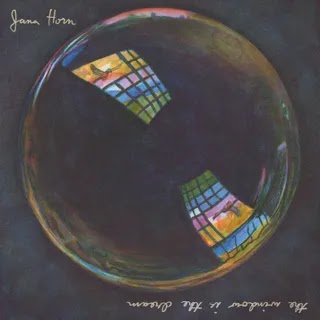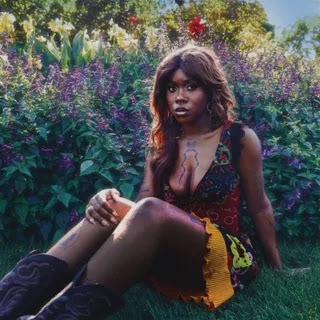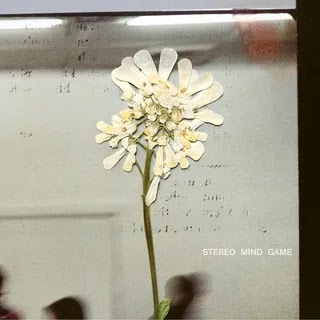New York psych rocker Ryan Jewell channels the subterranean sounds of the ’70s—kosmische, prog folk, space rock—into infectious, wildly inventive songs.
Ryan Jewell is a first-call utility player in the rock underground who has long shown flashes of all-star potential. But neither his extensive list of collaborations with Ryley Walker, Neil Hagerty, Steve Gunn, Psychedelic Horseshit, et al., nor his micro-indie releases, whether solo or with his band Mosses, can totally prepare you for the eclectic excellence he flexes on T.V. Sun.
Intimations of T.V. Sun can be heard in the transcendently twangy, Sandy Bull-like “Mono Lake Improvisation,” from Mosses’ 2014 album Attic Dundee, and in the cosmic pastoralia/space-rock klang of 2015’s Ouroboros. But Jewell and main musical partner Danette Bordenkircher—who contributes piano, vocals, and flute to the new record—have polished their variegated influences into compositions that show a deep appreciation of ’70s subterranean rock and electronic music while flooding the stereo field with their own distinctive sounds. Their inspirations may not be a mystery, but Jewell and Bordenkircher’s musical taste is impeccable, and Mosses’ inventive song structures and tonal palette swiftly rebut any charges of derivativeness.
“Tall Bearded Iris Speck” raises the curtain on a band frolicking in verdant British prog-folk fields. After an intro of disorienting cascades of guitar, keyboards, and martial paradiddles, Jewell and Bordenkircher’s vocals evoke the archness of Tyrannosaurus Rex and Six Organs of Admittance. “There’s a lightness on the dark side of light/There’s a darkness on the light side of dark,” they sing, establishing their paradoxical, nature-observing bona fides. Eve Lenker’s fuzz bass and Jewell’s churchy organ lend the song the air of a Soft Machine fantasia.
With brilliant perversity, Mosses follow with “T.V. Sun,” whose introverted, methodical funk comes riddled with scat vocals and skeletal drum machine, bolstered by chunky funk beats from Troy Kunkler that hark back to Can timekeeper Jaki Liebezeit at his early-’70s peak. Over this, Jewell’s glinting guitars speak in elliptical tongues. The song’s frequent structural morphing and textural variety epitomize Mosses’ approach—not in an ADHD manner, but rather as the product of restless, organic creativity.
Mosses may be based in Highmount, New York, but their minds often flash back to ’70s Germany—a sage decision, musically speaking. “Time in Yer Mind” boasts the frightening propulsion of Can’s “Mother Sky” while also throwing in hysterical ululations that pay homage to the main riff of Pink Floyd’s “Astronomy Domine.” For good measure, they close the song with the sort of calamitous clangor that’s made Acid Mothers Temple a household name among LSD devotees. If you ever wanted to hear a Teutonic facsimile of the Modern Lovers’ “Roadrunner,” “MSR” will satisfy you with its orotund motorik drums and controlled euphoria. It’s the album’s obvious single, quasi-jokey vocals and all.
On “Ahh Auspicious,” Mosses strive for the grandeur of German kosmische-volk ensembles such as Emtidi and Between, attaining blissful elevation via Arjun Kulharya’s sitar and Bordenkircher and Meg Baird’s drifting vocal harmonies. LP closer “You Can’t Fall Off a Mountain” is a tangent from all that’s preceded it, even before Robbie Lee contributes an alto-flute solo that veers into the psych-jazz territory of Kraftwerk’s Florian Schneider-Esleben. Coupling the regimented arpeggios of Harald Grosskopf with the carbonated burbles of analog-synth madman Conrad Schnitzler, “Mountain” feels like T.V. Sun’s obvious highlight, without being ostentatious about it.
The radical tone shifts on this album suggest the musicians are having great fun, and that infectiousness translates to the listener. It helps that Jewell packs so many ingenious ideas into each song that he makes many of his contemporaries seem like underachievers. T.V. Sun proves that not all musical nostalgias are created equal. As highbrow and esoteric as Mosses’ reference points are, the songs that spring from them express a vitality that bridges eras.
View the original article here
















0 comments:
Post a Comment